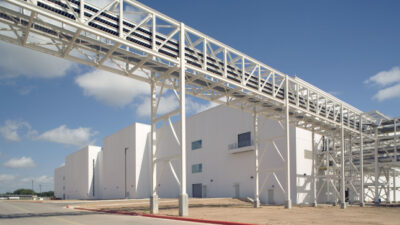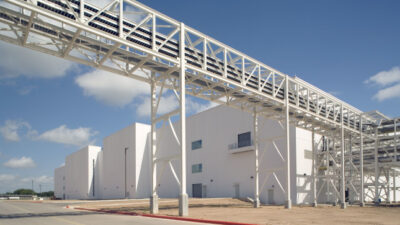A survey of member firms conducted by the American Council of Engineering Companies of New York has revealed the direction, trends and challenges the state’s consulting engineering industry expects to face over the next several years. A total of 175 firms participated in the study, 97% of which are headquartered in the state of New York.
“Our organization decided it was critical to conduct the survey in order to chart the course of the consulting engineering industry in the state for the next decade and beyond. The results will help us to focus our efforts and resources,” said Jay Simson, ACEC New York’s Executive Director.
Management of 64% of these firms expected the industry to grow over the next decade, but was less optimistic—at 57%—for growth over the next 20 years. An overwhelming majority thought that there will be consolidation in the industry, involving many more mergers and acquisitions. The issue drew the highest percentage of agreement (84%) on any question in the survey.
Among the most mentioned trends were design/build and other alternative delivery methods, including public/private partnerships, shortage of engineers and outsourcing to outside consultants or overseas of tasks not requiring special knowledge and skills. However, only one-third of the respondents said outsourcing would be important in their future growth plans, primarily to remain competitive and to offset shortages of qualified personnel.
Lesser trends identified were value-based pricing and price competition and greater use of the Internet, remote monitoring and scheduling. Telecommuting is used substantially or to some extent by three-fourths of the respondents; the same percentage predicts greater usage of telecommuting five years from now.
Critical issues the industry will face in the next five years include finding and retaining qualified personnel, which was of greatest concern to 41% of the participants. Less than half (42%) of the participants said they have enough engineers to meet their current project load. In five years, 71% said they won’t have enough engineers to meet their needs and in 10 years, 62% anticipated a continuing shortage. The greatest shortages will be in civil engineering, including transportation, highway and bridge engineers, followed by mechanical and electrical engineers, fire safety, structural and environmental engineers. Other issues included competition from both foreign and government sources, overhead expenses, insurance costs, profitability and ownership transition/governance.
Topping the list of factors important to retaining professional engineers are higher salaries, more visibility and recognition, mentoring and job security. Higher salaries, mentoring and greater status for engineers were also mentioned as necessary to attract students to the profession, as well as increased outreach programs and internships.



